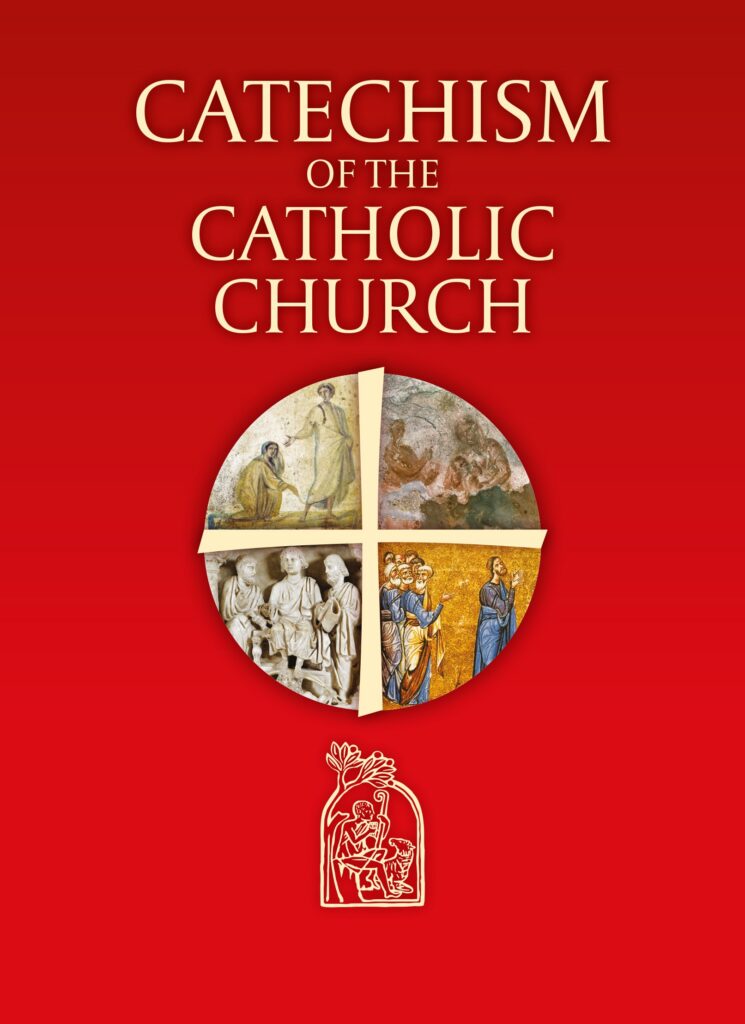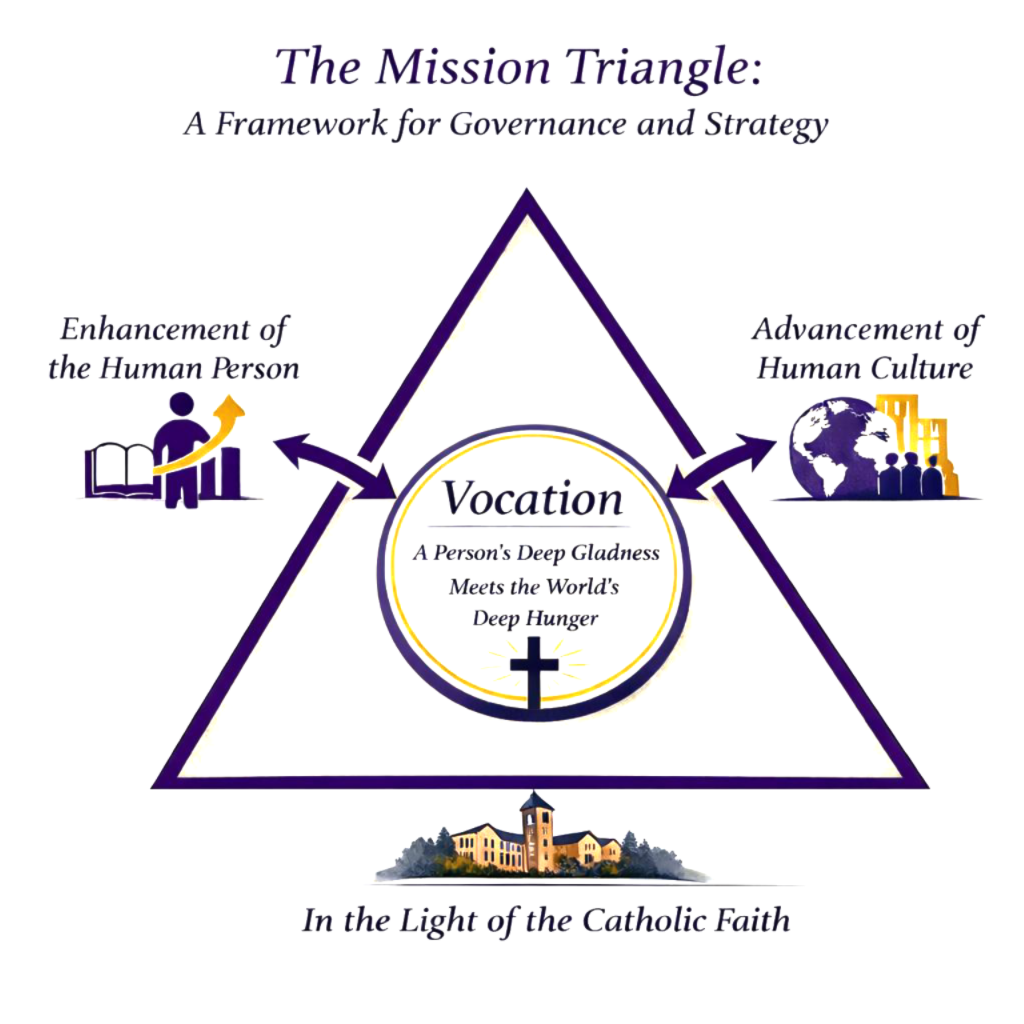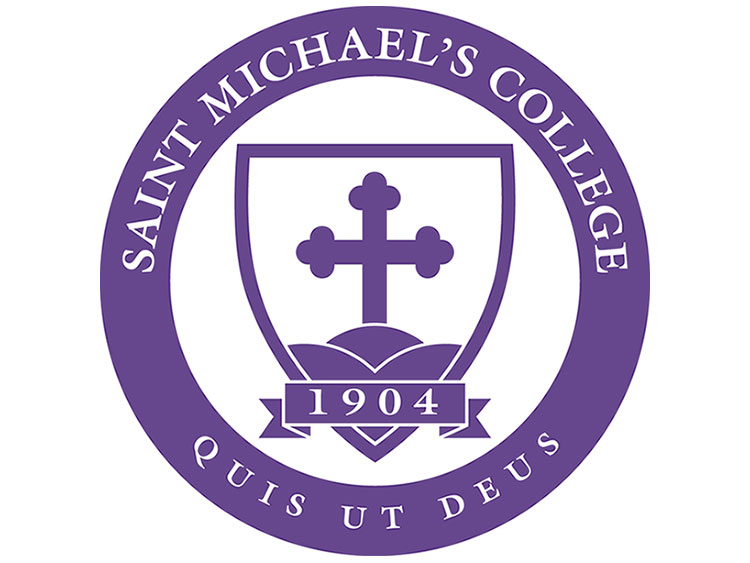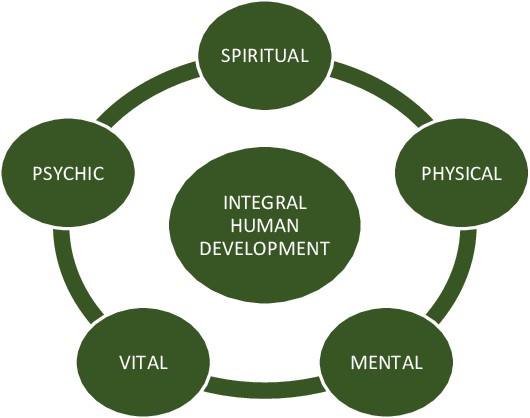
Fr. David Theroux S.S.E. ’70, left, and Saint Michael’s College President Richard Plumb in August 2024. (Photo by Elizabeth Murray)
Last summer, President Richard Plumb asked me to take on the inaugural position of Vice President of the Office of Edmundite Mission. Dr. Plumb decided to create the position and the office to maintain the Catholic identity of the College as well as to preserve the Edmundite legacy of the College. In addition, the Catholic principles of social justice were to be the linchpin connecting the Catholicity of the College and the legacy of the Society of Saint Edmund.
As part of my responsibilities, I decided to begin a weekly blog as a resource for the College and a means of communicating to the College community what it means for Saint Michael’s to be Catholic. I envision this as both conveying the meaning of Catholicity at Saint Michael’s, that is, the particular way that the College identifies as Catholic, as well as what the principles of social justice are, in themselves and in the legacy of the Society of Saint Edmund’s ministry. I believe that there is in the College’s Catholicity a distinctive identity which Saint Michael’s College possesses and can share with students, with the faculty who instruct our students, and with the staff who support the College’s educational efforts.
As was generally made known to faculty and staff at Saint Michael’s College during the administration of Dr. Lorraine Sterritt and now under the presidency of Dr. Richard Plumb, the Board of Trustees made the decision to maintain the Catholic identity of Saint Michael’s College. For some, this flies in the face of the perception that Saint Michael’s would fare better as a college if it were no longer religiously affiliated with the Catholic Church. Additionally, some believe it is opportune for the College to leave behind its Catholic identity because of the decision by the Society of Saint Edmund to complete and turn over the future direction of the College to a Board of Trustees on which the Society will no longer have a role.
And so, why not ask the question: Would Saint Michael’s College fare better as a college if it were a secular institution like others in Vermont or New England?
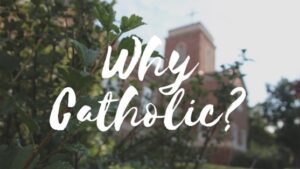
Discussions regarding the wisdom of college affiliation with the Catholic Church make the point that becoming secular does have the possible advantage of attracting students who might not otherwise consider a Catholic college. However, the risk is that those students who are looking for a specifically Catholic college may not select Saint Michael’s because it is secular. How the benefit and the risk balance out, however, is not known. Regardless, those who have surveyed students’ college choices do note that religious affiliation is not as significant as other factors in the choice of a college: affordability, employment opportunities in graduating, location, size, and many other considerations. The choice for or against a religiously affiliated college does not seem to rely on religious affiliation alone or significantly. What does seem sure, however, is that the decline in the number of students applying to Saint Michael’s College is typical of the market and not of the brand. That we could improve enrollment by becoming secular seems at best a dodgy proposition. A few Catholic universities and colleges have seen a rise in enrollment recently and others have maintained enrollment similar to secular institutions of higher education. In addition, what advantage would the College achieve by being like other secular colleges?
There is another possibility. Rather than abandoning the Catholic identity of Saint Michael’s, why not lean into it? The Board of Trustees’ decision to remain Catholic could mean more than business as usual: Catholic in name only without much purpose to the identity. Engaging both students and faculty in an exploration of the Catholic principles of social justice could make for a distinctive program of study. Seeking out the implications of the Catholic principles of social justice in the extra-curricular involvements of students could further lead students to explore the ethical implications of what they do.
The essential question is what kind of “Catholic” do we want to be. This is the question I want to explore in the blogs to come. Any comments you would like to make at this time can be addressed to me at dtheroux@smcvt.edu. Let’s talk.

For all press inquiries contact Elizabeth Murray, Associate Director of Communications at Saint Michael's College.

